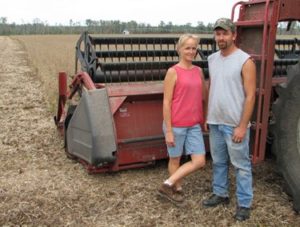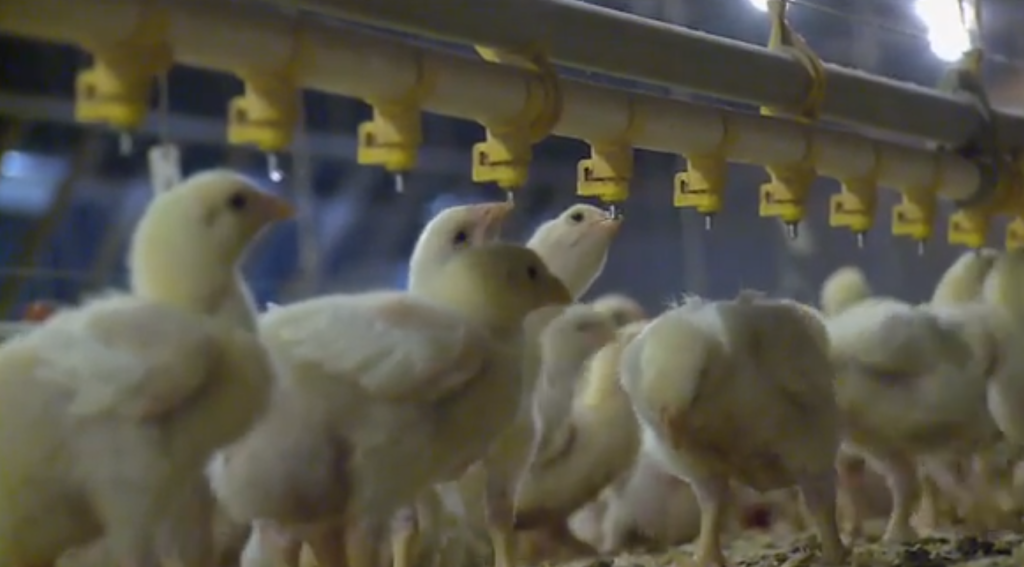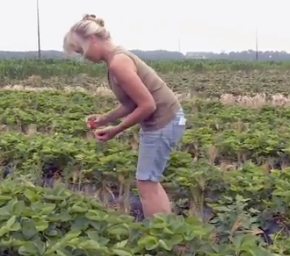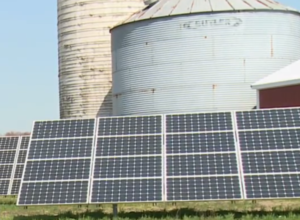What do Solar Energy, Recycled Poultry Litter and Well Water Have in Common?
Terri Wolf-King’s Cornerstone Farm is a smooth operation. She and her husband wake up at break of dawn and settle back in around 10 PM each day.
When they aren’t busy tending to their chickens, row crops and family, the King’s make every effort to further improve the efficiency of their farm, thereby reducing their impact on the planet.
“We always want to make the best use of our resources. To do this we must be good stewards of our land.”

Each Drop of Water Counts

Terri’s farm has one well for each of the two chicken houses on her farm. By monitoring and recording the water usage on her farm daily, Terri can monitor how much water is being used in order to ensure the wellbeing of her chickens without being wasteful.
Wells and water lines are inspected regularly, and they are sanitized at least twice a week to make sure the water quality is fit for the flock.
Water is also used to cool the chicken houses through evaporative cooling pads. Terri makes sure these cooling pads only use water when necessary and regulates their use to warmer months.
Putting Poultry Litter to Good Use

Some might think poultry litter is a waste product. Not Terri! All poultry litter from Terri’s chicken houses is stored and composted, and then used as a fertilizer for her row crops. Currently, Terri and her husband grow corn, soybeans, sweet corn, cucumbers and string beans.
“My poultry farm is an organic source of nutrients for my row crops. Litter from poultry farming is a community recycling effort. I often buy litter from other farmers to be used as fertilizer on my crops.”
To maximize the effectiveness of the litter as fertilizer, Terri works with outside counsel to create a nutrient management plan. This plan compares the nutrients available in the soil and the litter to what the crop will need and suggests optimal application procedures.
How Terri Uses Solar Energy

In 2012, Terri and her husband committed to using solar energy to help power the farm. The couple installed solar panels beside their chicken houses, lowering their energy bill and decreasing their environmental footprint.
“We found an open area that wasn’t being utilized for anything else. We saw the opportunity to add an efficient technology to our farm,” says Terri.
The Future of Chicken Farming and Terri’s Legacy
Terri is always looking for ways to run an even more efficient and environmentally sustainable farm. Her passion stems from the desire to create a sustainable future for agriculture that can be handed down for generations.
“Farmers are conservation-minded. We want to preserve our resources. It isn’t just how we make our living. It is how we leave our legacy.”
Looking to learn more about environmental sustainability on the farm? Check out how Terry Baker practices environmental sustainability on his chicken farm.